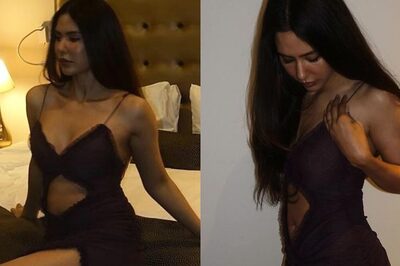
views
The issue of race looms large over the trial of a white former Minneapolis police officer charged in the death last May of George Floyd, a Black man.
The racial makeup of the jury that will decide Derek Chauvin’s fate has been no exception, as observers carefully watch the jury selection process that started Tuesday and could last up to three weeks. Prosecutors have already challenged the dismissal of two potential jurors, objecting that defense attorneys threw out the Hispanic man and woman based on their race.
While the U.S. Supreme Court has ruled that attorneys cannot dismiss a juror based solely on their race, veteran lawyers and researchers say there are plenty of ways attorneys can indirectly shape a jury’s racial makeup if they believe it will help their case.
HOW ARE JURIES SELECTED?
Once a pool of potential jurors reaches a courtroom, defense attorneys and prosecutors use a complicated rubric to determine who will end up on the jury. In the Chauvin trial, the jury will comprise 12 members and two alternates. While the goal objectively is to seat an unbiased jury, both sides try to remove people who may view their case unfavorably.
In some cases, especially when there has been a lot of news coverage, attorneys will submit a series of questions to be mailed to the potential jury pool and filled out ahead of jury selection. Potential jurors in the Chauvin trial were sent a 13-page questionnaire asking about their knowledge of the case, their opinions of the Black Lives Matter and Blue Lives Matter movements, whether they have had martial arts training and other questions.
Lawyers are given the chance to further question jurors during in-person selection. Either side can ask a judge to dismiss a juror for cause, meaning they believe a juror is biased or lacks the ability to serve. The attorney raising the issue has to explain the potential bias when they ask for dismissal for cause.
Each side also gets a certain number of peremptory challenges to dismiss potential jurors that they don’t have to justify. However, the U.S. Supreme Court ruled in the 1986 Batson v. Kentucky case that peremptory strikes cannot be used to dismiss jurors based solely on their race.
WHAT IS A BATSON CHALLENGE?
The opposing attorney can raise a Batson challenge to a peremptory strike if they believe the juror is being dismissed because of their race. If a judge accepts the challenge, the attorney who issued the strike then has to present a race-neutral reason for dismissal.
Prosecutors did that in Minneapolis this week after Chauvins attorney, Eric Nelson, blocked two potential jurors who identify as Hispanic. They raised concerns that those jurors may have been rejected because of their race. Judge Peter Cahill disagreed, noting that one had struggled with some terminology and that the other had martial arts experience and referred to Chauvins restraint as an illegal move.
CAN A LAWYER EVER DISMISS A JUROR BECAUSE OF RACE?
While Batson bans dismissal solely because of race, many veteran lawyers, researchers and others argue that questions regularly used to dismiss jurors for bias are slanted against people of color.
Whitney DeCamp, a sociology professor at Western Michigan University, studied peremptory challenges in a few hundred cases in a Mississippi court district. He found Black potential jurors were more likely to be dismissed with peremptory challenges than their white counterparts, even though they made up a smaller percentage of the jury pool. DeCamp said many studies have found that lawyers are more likely to ask additional questions of jurors of color, which he says gives them more information that can yield a race-neutral reason for an objection.
Mary Moriarty, former public defender for Hennepin County where Minneapolis is located, said she believes the most biased jury selection questions revolve around previous interactions with police and opinions about racial bias in policing.
I don’t think I have ever met a Black man who has not had a negative interaction with the police department,” Moriarty said Wednesday. So while that can be accepted as a race-neutral justification for dismissing a potential juror, there is implicitly race built into the question. Race-neutral isn’t always race-neutral.
Disclaimer: This post has been auto-published from an agency feed without any modifications to the text and has not been reviewed by an editor
Read all the Latest News, Breaking News and Coronavirus News here




















Comments
0 comment